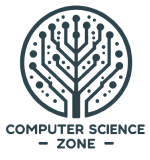
In the age of technology that we live in pursuing an education in computer science is simply a sure bet, or at least as sure as they come in higher education. According to the Bureau of Labor Statistics, almost every job in the industry of computer science is showing growth well above the national average, an exciting prospect for anyone interested in obtaining a computer science degree. Obtaining the degree that best suits your interests and leads to your ideal career, however, is another story. There are a staggering number of computer science degrees and specializations, sub-specialties, and degree combinations. The differences between them can be both very subtle and highly consequential, having an enormous impact on learning paths and career outcomes down the road. So below you can find our exploration of the three main degrees in the field computer science: Computer Science, Computer Information Systems, and Information Technology.

Computer Science simply put is the scientific study of computers, their processes, and why they work. This study of computers delves into computer software, information systems, artificial intelligence, programming languages, information technology, machine programming, and cyber defense. A degree in computer science can lead to any number of lucrative and in high demand occupations including: web developers, data scientists, IT technicians, programmers, computer scientists, and more. All of which can excel in a wide array of industries, meaning that students with a computer science degree have an enormous amount of freedom to choose how, when, and where they work while maintaining impressive financial freedom as well. Seem too good to be true? Well for once it’s not. The only trouble though is deciphering which of the many, many paths you will take–for there are countless options and many of which can appear identical on the surface.
As a degree defined by technology, it should be no surprise that many top computer science degree programs can be earned entirely online. While many students require the platform of traditional schooling to best meet their education goals, many of the tech-minded students see enormous opportunity in online degree options. The freedom to learn when, where, and how you want is something that empowers many prospective students and busy professionals to earn their degree when they otherwise would not have been able to–whether due to busy work schedules, demanding personal lives, or other factors. You can find our article exploring the best of the undergraduate options for obtaining such an online computer science degree here.

Computer Information Systems is the branch of study wherein students explore the vast number of practical applications of technology, and how these applications might best support other business/organizations, applications, or research. Computer Information Systems is often confused with Information Technology. They are indeed similar, however, the CIS degree empowers students to explore areas and subject matter that are often peripheral to IT degrees. Essentially, the IT degree is for the most part designed to prepare students to take on roles in tech support or in IT services where they employ existing technology to tackle current problems, while the CIS focuses on teaching students how to develop new technology to tackle future problems. The degree will deliver an education wherein students tackle a variety of areas such as business systems, programming, social networking, software design, and intensive mathematics. This effectively grants students more freedom to choose their own career paths and choose in which niche market they will attempt to develop new technology–an impressive amount of personal choice.
It is important to note here that computer information systems as an area of study often presents itself in many different names. CIS degrees can be called Information Systems, Business Information Systems, or Management Information Systems. And these alternative names conveniently illuminate what makes the CIS degree unique: it focuses on the bridge between information system technology development and the business world, meaning that students necessarily keep up with both of these worlds and determine how new information systems might best bridge the gap between them. This makes the CIS degree an absolutely incredible tool for any up and coming entrepreneurs in the tech world, as it prepares them to stand at the apex where business technology needs and business technology development meet–an excellent place for any entrepreneur to be.
Check out our ranking of the 20 Best Online Masters in CIS
Check out our ranking of the 20 Best Online Bachelors in CIS

Information Technology is the field of study that is defined by a clear dedication to the practical applications of computers in a work environment. While the CIS degree focuses more on developing new technology to meet pressing needs of the business world, the IT degree focuses more on teaching students how to best implement computer and information technology into the current workplace. The most popular careers in IT are software/app development, computer systems analytics, information security analytics, and computer user support specialty. The IT degree offers students a unique opportunity to both work with technology and serve people in tech support, which is also one the highest in-demand markets in IT.
Students may also find it game-changing to note that the IT degree requires significantly less math than the Computer Science degree or CIS degree. In this same vein, the IT degree also offers several routes of study that focus on applied tech such as database management, security, or networking, which are characteristically different in that they don’t require an enormous dedication to writing code–a perk that some students will likely love. Essentially, there are two main learning options that are uniquely tied to the IT degree. This is is all the more noteworthy because the three degrees explored in this article are similar to begin with, and become near indistinguishable when adding degree specializations and sub specializations to the mix, but despite this characteristic homogeneity the IT degree distinguishes itself through offering these exclusive perks.
Check out our Ranking of the 20 Best Online Bachelors in Information Technology
Check out our Ranking of the 20 Best Online Masters in Information Technology
So What’s the Difference? As mentioned above there are numerous distinctive characteristics between the Computer Science degree, the CIT degree, and the IT degree. But these characteristics are for the most part only apparent at a very micro level. So for students, who are looking for a more basic understanding of the differences between these three degrees, we can distinguish between them at the macro level. Each of the degrees at its core seeks to answer a fundamental philosophical question:
CS: how might we develop, test, and hone computing systems that mechanize repetitive tasks?
CIS: how might computing solutions be used to answer an organizational or research problem?
IT: how might we ensure uptime or repair existing hardware systems?
